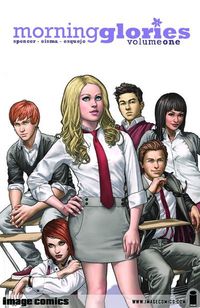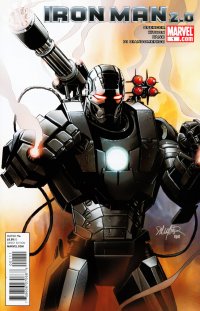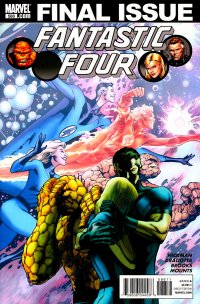Morning Glories Volume One tpb (Image Comics, $9.99)
by Graig Kent
One of Image Comics’ strengths as a major comics publisher is their versatility, their capability to publish any type of story, with any kind of art as they choose, without much in the way of limitations for their books’ creators. Though they have tentpole creators and books (eg. Robert Kirkman, Spawn) they also have a vested interest in finding and breaking talent. This makes them an exciting and unpredictable publishing house, and it also makes it difficult, as a comics fan, reader, and reviewer to know what to start reading and also what to stick with. With so many creators at the start of their careers, much of Image’s monthly output can seem unrefined. If the trends in comics from the past decade signal anything, it’s that readers generally like known commodities, whether it be a known writer, artist, character, or concept.
Morning Glories hits upon all these points in a curious fashion. Writer Nick Spencer is a breaking talent at Image, (with two well-received titles under his belt he’s already caught the attention of the big two, currently writing T.H.U.N.D.E.R. Agents over at DC), with this title causing the biggest stir yet. And it’s not hard to see why. There is a sense of familiar in the concept which eases the reader in right away, the whole “Xavier’s School For Gifted Youngsters” idea is the immediate latch, but this isn’t First Class nor is it the Umbrella Academy. If I had to put it anywhere it’d be more Dario Argento’s Suspiria, horrific and conspiratorial. Spencer’s greatest gift to this story was not drawing out the mystery of the school’s nefariousness, instead getting into it hard within the first two chapters. But everything is not what it seems, and the school’s true purpose is yet to be revealed. The new recruits, an ensemble cast of expected types — the brain, the emo chick, the posh girl, the troublemaking preppy kid, the quiet Japanese kid, and the demure one — are all foundations for building characters, though some have yet to rise above their basic cliche. But they are our guide, and instantly recognizing they are the outsiders in this new world, and with this new world maliciously challenging them, Spencer makes it easy to connect and gang up with them against the authority.
This volume collects the first six issues of the series, and, as exciting as the initial story arc is, it’s the last chapter which is the game changer taking this book from really good to damn terrific. It takes the story on a diversion, a scenic route, and as a reader you’re not exactly certain how it relates to what came before, but in the end it comes back around again, and it left me excited and smiling.
Morning Glories seems to come fully formed, with Spencer having an apparent game plan in place and ready for execution. I have little doubt that the further this series goes along, the more these starting issues will require re-reading. Seeds are planted throughout this first volume which are so numerous some of these payoffs will no doubt be a long time in coming.
If there’s a weakness to Morning Glories, it’s in Joe Esima’s art. While he carries the story well through his page breakdowns, his linework is spare, his character consistency uneven, and he has a tendency to draw panels in some fairly extreme angles which are more distracting than complimentary. His backgrounds read like low-budget sets, which creates a cold atmosphere for the Morning Glory Academy, and I’m not sure that’s the desired effect required for every surrounding. Here is an artist in development, still deciding where to go with his style, and he’s fortunate to have such a strong script to really help him work through it.
Regardless of any faults, this book is strong and exciting, and has the potential to be a new pillar of Image’s lineup beside Walking Dead and Chew and a creator worth following to any other project.
Rating: 




Out of a Possible 5 Stars
 Iron Man 2.0 #1 (Marvel, $3.99)
Iron Man 2.0 #1 (Marvel, $3.99)
By Jeb D.
Never been the biggest War Machine fan (and despite the title, this is the new War Machine book). Nothing particular against the character, it’s just I find that one Armored Avenger at a time is generally enough, so Jim Rhodes’ adventures have generally taken a back seat for me. He’s at his best, though, when a story plays up the contrasts between himself and Tony Stark: the lush versus the straight arrow, the entrepreneur versus the military man, the adventurer versus the man of duty. So I’m pleased to say that the debut issue of this new book by Morning Glories creator Nick Spencer acquits itself in that department. It’s not a “reboot,” per se, but the story is structured in such a way as to clear the post-Dark Reign decks, and give War Machine a role and a purpose distinct from that of Iron Man.
Spencer gets things off to a good start, with a bantering exchange between Stark and Rhodey during a typical supervillain showdown; I like the fact that there’s a bit of an edge to each man’s needling of the other: they’ve been friends long enough not to throw sticks and stones, but each knows the other well enough not to have to fake anything. From there, Rhodes is to be re-integrated into the military command structure, and while his encounter with his new commanding officer, and support staff, feel a bit rote, they do lay out the groundwork for his new assignment while already showing us the challenges that a high-flying superhero faces in trying to fit back into the military mold.
My only real criticism of the script comes as we get into the meat of Rhodes’ first assignment: it’s a classically “impossible” mystery (sort of like a locked-room Agatha Christie story), as he is presented with evidence of crimes and terrorist actions being committed in a way that appears, on the surface, to be impossible… except that this isn’t Christie, it’s a superhero comic. The cast spends several pages explaining to Rhodes all the obstacles that make it impossible for their prime suspect to have done what he seems to have done (just for starters, he’s supposed to be dead), and in the “real” world, their objections might be puzzling. But anyone who’s read a superhero comic will immediately think of half a dozen possibilities that we have seen before to explain it, so the story spins its wheels a bit, with the reader way ahead of the characters. Still, once the “how did he do that?” stuff is out of the way, this looks like a promising beginning for the book’s first story arc.
My real hope for this book had been seeing the great Barry Kitson run wild drawing Stark tech, and I’m a tad disappointed: just for starters, there’s not much of it (a lot of the story takes place in bland corridors and conference rooms), and for whatever reason (time pressure?) Kitson need a bit of help, sharing the art chores with Kano and Carmine Di Giandomenico, so the book feels a little slap-dash. Hopefully, that will smooth out in future issues. For your $3.99 you also get a text piece on the history of War Machine: as with most such things, it will give you headaches if you try to make sense of the convoluted backstory, but the vintage panels chosen to illustrate it are a real kick.
Rating: 




Out of a Possible 5 Stars
Fantastic Four #588 (Marvel, $3.99)
By Jeb D.
Given the fact that graphic storytelling’s most elemental distinction is its use of… well, graphics… it’s surprising that we don’t see more comics like the main story in this issue: all pictures, with no word balloons at all. I’d love to see more of it, and it doesn’t help readers to take the idea seriously that, where the Big 2 are concerned, this technique tends to be restricted to gimmicks like Marvel’s “‘Nuff Said” month… or sober final issues like this one.
Yep, this is the “final” issue of Fantastic Four; it is due to be replaced with “FF (Future Foundation)” (which may or may not also be “The World’s Greatest Comic Magazine”), because, as you may have heard, the Human Torch got snuffed last issue (Yeah, yeah, he’ll be back. I know. Whatever). What we have here is a story, told solely in pictures, of the effects that has on the remaining members of the team, and the rest of the Marvel U. In a way, it’s an interesting reversal for writer Jonathan Hickman: while he made his name with text-heavy books like The Nightly News and Pax Romana, which some people accused of being more illustrated novels than comic books, here he’s relying solely on his ability to guide a story without the crutch of language. Naturally, you need strong artistic support for that, and Nick Dragotta provides that in spades. The dark tone (just about the polar opposite of Alan Davis’ rather sentimental cover image) is appropriate for the bleakness of the story, but apart from that, there’s an awful lot of early Kirby-Sinnott in his work here, particularly in the tortured faces of the grieving characters. I won’t spoil story specifics: with a comic that asks more of the reader than usual, even the smallest visual detail can provide a welcome frisson of surprise, recognition, or discovery. I will say that much of what goes on in the book is just as powerful and chilling as you’d expect the wake of a hero’s passing to be: Val has a great “hell yeah!” moment, and there is a (wordless, obviously) exchange between Reed and Annilihus that is quietly blood-curdling, and almost shocking in its cruelty.
I would also add that, for all its silence, the story is not at all hard to follow: frankly, I’m a couple months’ behind in my reading on this book, and I only knew that Johnny Storm had died from reading the news online. Even given that, it read as clearly and powerfully as if I’d just set down the previous issue.
And even if you don’t dig the wordless presentation, you’ve gotta love the backup story: illustrated beautifully by Mark Brooks, Hickman shows Spider-Man taking Franklin Richards out for a day of web-spinning through the New York skyline, as he uses his own tragic past to help the young boy come to terms with his uncle’s death. There’s talk aplenty in this one (as well the sharing of hot dogs!), but it’s of an offhandedly, eloquent nature that demonstrates again that spandex storytelling has plenty of potential for sensitivity and reflection in the hands of a writer like Jonathan Hickman.
Rating: 




Out of a Possible 5 Stars